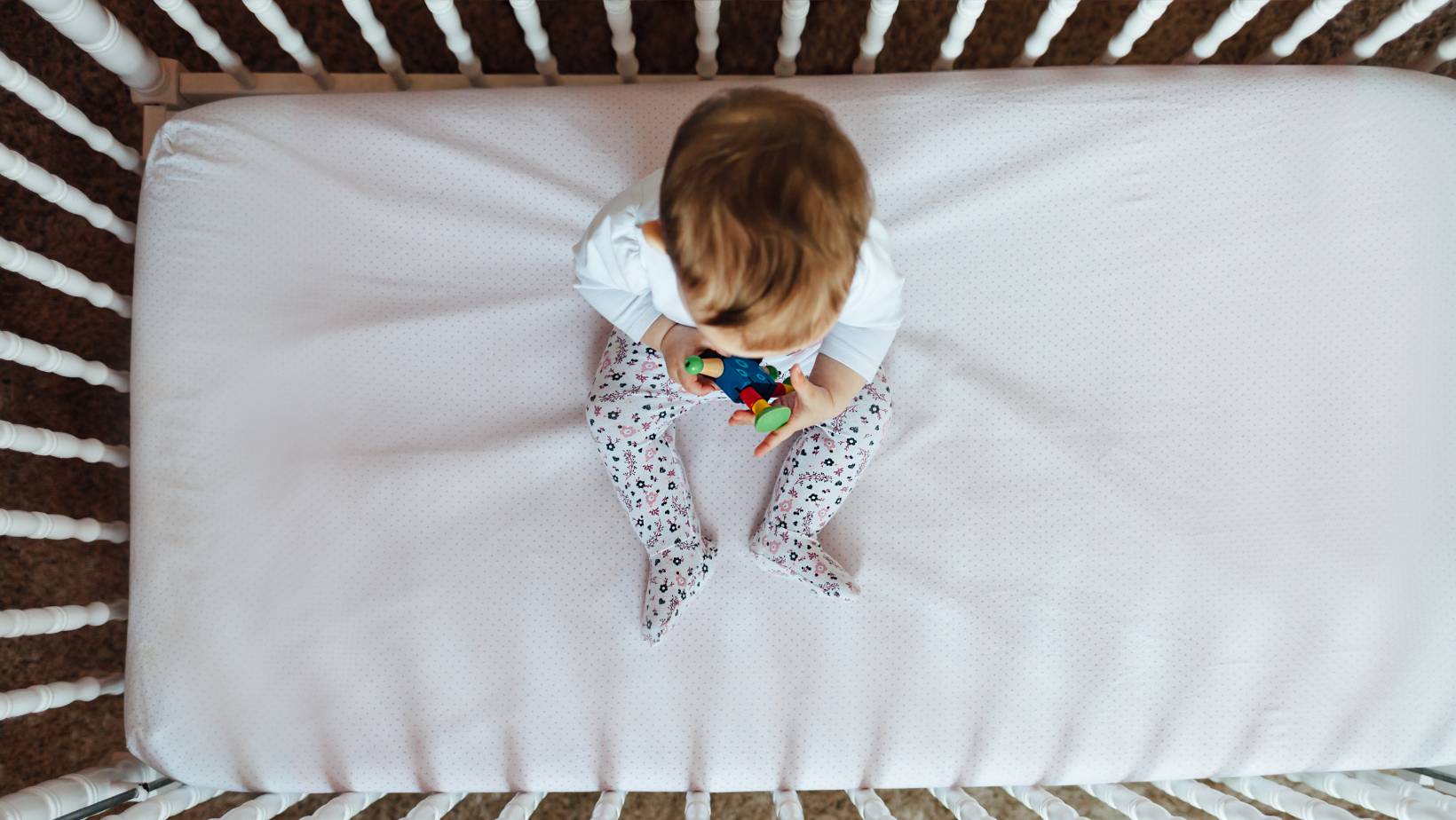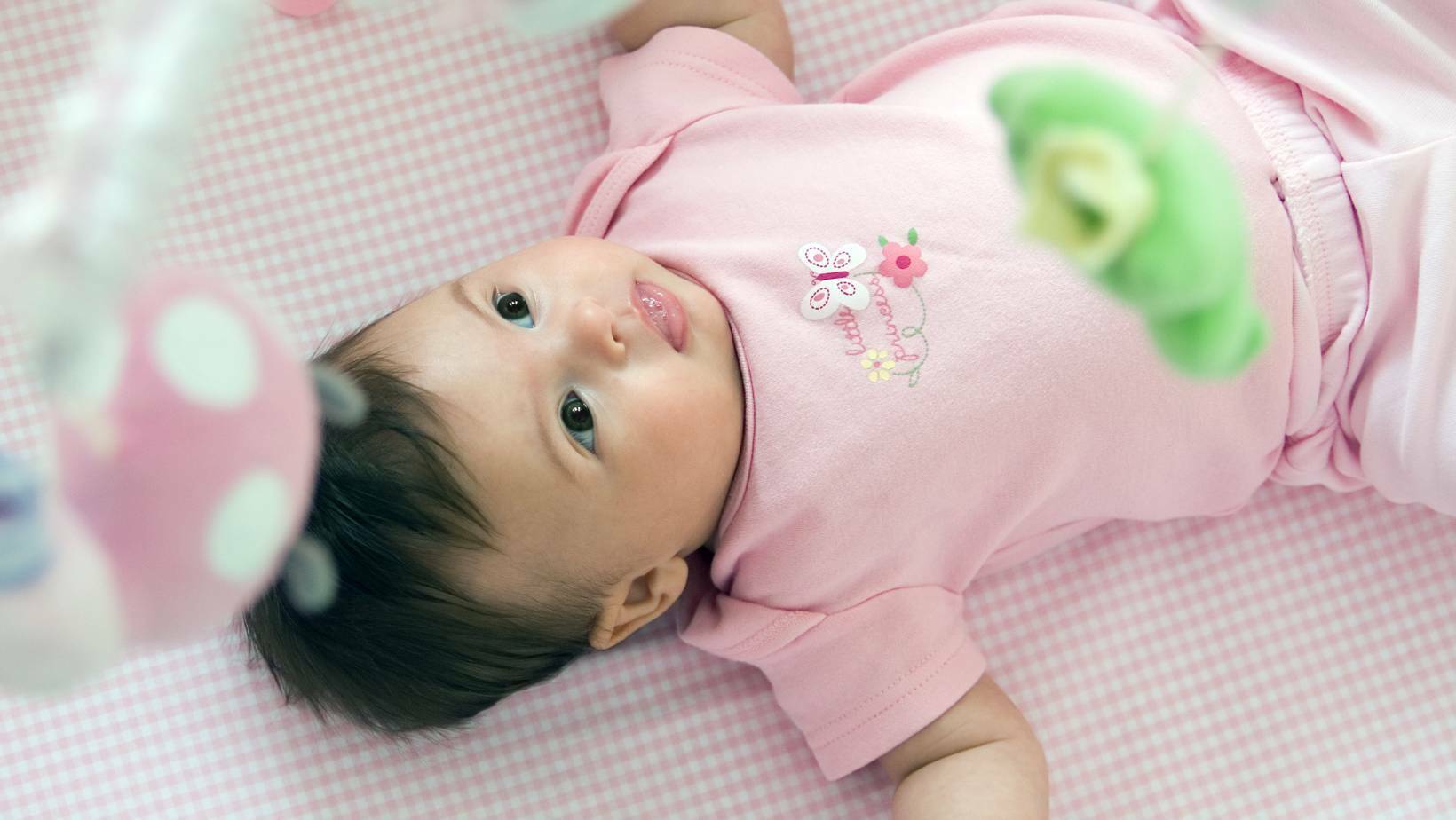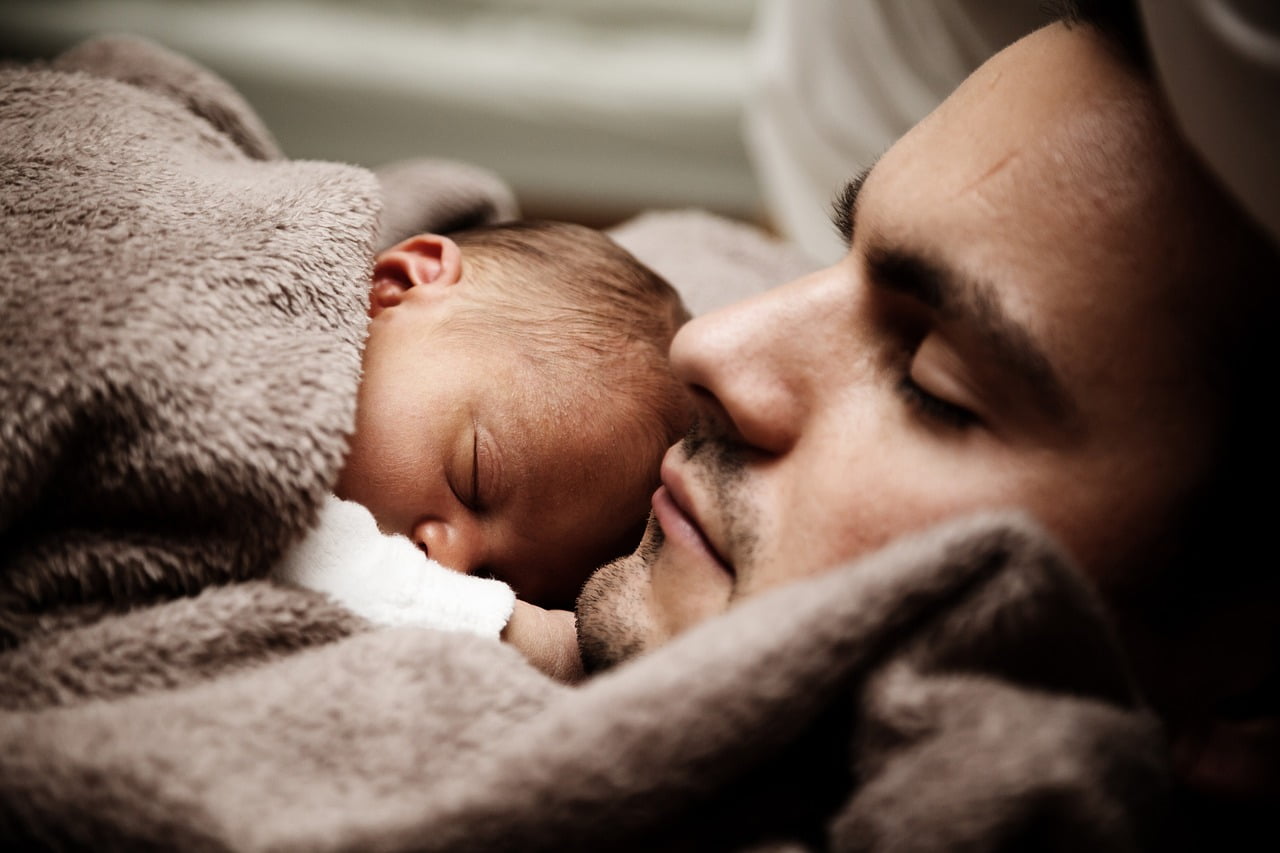Providing a comfortable crib for your baby is crucial for their overall well-being and development. Your baby spends significant time in their crib, so creating a space that promotes comfort and relaxation is essential. A comfortable crib helps your baby sleep better, ensures their safety, and reduces the risk of discomfort or injury. By understanding the importance of a comfortable crib, you can take the necessary steps to make it a cozy and inviting space for your little one.
One of the primary reasons why a comfortable crib is essential is that it promotes healthy sleep patterns for your baby. Babies need a considerable amount of sleep to support their growth and development. A comfortable crib can provide the right environment conducive to restful sleep. It should be a safe and secure space where your baby can relax and feel at ease. When your baby feels comfortable in their crib, they are more likely to sleep longer and wake up refreshed, leading to a happier and healthier baby.
Another crucial aspect of a comfortable crib is its impact on your baby’s physical development. During sleep, your baby’s body undergoes various growth processes. A comfortable crib ensures that your baby is appropriately sleeping, allowing their body to align correctly. It also helps prevent discomfort or pain from an uncomfortable sleeping surface. By providing a supportive and comfortable mattress, you can help promote proper spinal alignment and reduce the risk of developing musculoskeletal issues in the future.

Contents
- 1 Choosing the Right Crib Mattress for Maximum Comfort
- 2 Creating a Cozy and Safe Sleep Environment
- 3 Using Breathable Bedding and Appropriate Sleepwear
- 4 Incorporating Soothing Sounds and Night Lights
- 5 Maintaining a Consistent Sleep Routine
- 6 Addressing Common Discomfort Issues: Teething, Colic, and Reflux
- 7 Ensuring Proper Room Temperature and Ventilation
- 8 Monitoring for Signs of Discomfort and Adjusting as Needed
- 9 Conclusion
Choosing the Right Crib Mattress for Maximum Comfort
Choosing the right mattress is paramount when making your baby comfortable in the crib. The crib mattress is the foundation for your baby’s sleep, so selecting one that offers maximum comfort and support is crucial. Here are some factors to consider when choosing a crib mattress:
- Firmness: Opt for a firm mattress that adequately supports your baby’s growing body. A firm mattress helps prevent suffocation and reduces the risk of Sudden Infant Death Syndrome (SIDS).
- Size: Ensure that the mattress fits snugly within the crib. There should be no gaps or spaces between the bed and the crib walls to prevent the risk of entrapment.
- Materials: Choose a mattress made from non-toxic and hypoallergenic materials. This helps prevent allergies and ensures your baby’s comfort and safety.
- Waterproofing: Consider a mattress with a waterproof cover to protect it from spills and accidents. A waterproof mattress is easier to clean and maintain, ensuring a hygienic sleep environment for your baby.
Considering these factors, you can select a crib mattress that provides optimal comfort and safety for your baby.
Creating a Cozy and Safe Sleep Environment
In addition to choosing the right mattress, creating a cosy and safe sleep environment is vital for your baby’s comfort in the crib. Here are some tips to help you create a comfortable and safe sleep environment:
- Proper crib placement: Place the crib away from windows, cords, and any potential hazards. Ensure that the crib is stable and securely assembled to prevent accidents.
- Soft bedding: Use a fitted crib sheet that is smooth and wrinkle-free. Avoid using loose bedding, such as blankets or pillows, as they can pose a suffocation risk. Instead, opt for sleep sacks or wearable blankets to keep your baby warm and comfortable.
- Blackout curtains: Install blackout curtains or blinds to create a dark and conducive sleep environment. This helps block out any excess light that disrupts your baby’s sleep.
- Soft lighting: Consider using a dim night light in the nursery. Soft, ambient lighting can help soothe your baby and make them feel more secure during sleep.
Creating a cozy and safe sleep environment can enhance your baby’s comfort and promote better sleep quality.
Using Breathable Bedding and Appropriate Sleepwear
To make your baby more comfortable in the crib, it’s essential to use breathable bedding and appropriate sleepwear. Babies have delicate skin and are more prone to overheating, so choosing fabrics that promote breathability is crucial. Here are some tips to help you select the right bedding and sleepwear for your baby:
- Cotton fabrics: Opt for bedding and sleepwear made from breathable cotton fabrics. Cotton allows air circulation and helps regulate your baby’s body temperature, keeping them cool and comfortable.
- Avoid excessive layers: Dress your baby in appropriate sleepwear based on the room temperature. Avoid overdressing or using too many layers, as this can lead to overheating and discomfort.
- Swaddling: Use lightweight and breathable blankets if your baby enjoys being wrapped. Ensure the swaddle is not too tight and allows room for natural movement.
- Regular checks: Regularly check your baby’s body temperature by feeling their chest or back. Adjust the bedding or sleepwear accordingly to maintain a comfortable temperature.
Using breathable bedding and appropriate sleepwear ensures that your baby stays comfortable and safe throughout the night.
Incorporating Soothing Sounds and Night Lights
Soothing sounds and nightlights can make your baby more comfortable in the crib. These elements create a calming and familiar environment that promotes relaxation and better sleep. Here are some ways to incorporate soothing sounds and night lights in your baby’s sleep routine:
- White noise machines: Invest in a white noise machine or use smartphone apps that play soothing sounds like ocean waves or gentle lullabies. These sounds can help drown out background noise and create a peaceful sleeping environment.
- Soft music or lullabies: Play soft music during your baby’s bedtime routine. The gentle melodies can help soothe your baby and signal it’s time to sleep.
- Night lights: Use a dim night light in the nursery to provide a soft glow. Night lights offer a sense of security and make it easier to check on your baby without disturbing their sleep.
By incorporating soothing sounds and nightlights, you can create a calming atmosphere that promotes relaxation and better sleep for your baby.
Maintaining a Consistent Sleep Routine
A consistent sleep routine makes your baby more comfortable in the crib. Babies thrive on predictability and performance, and having a structured sleep schedule can help them feel secure and prepared for sleep. Here are some tips for maintaining a consistent sleep routine:
- Set a regular bedtime: Establish a fixed bedtime for your baby based on age and sleep needs. Consistency at rest helps regulate the internal clock and signals the body to prepare for sleep.
- Create a wind-down routine: Develop a relaxing wind-down practice that includes bath time, reading a story, or gentle massage. A consistent wind-down approach helps your baby transition from playtime to bedtime.
- Dim the lights: Lower the lights in the nursery as part of the wind-down routine. This signals to your baby that it’s time to relax and prepare for sleep.
- Stick to consistent sleep cues: Use cues like a favorite blanket or stuffed animal to signal sleep time. These cues help your baby associate them with sleep and create a sense of comfort and security.
Maintaining a consistent sleep routine can establish healthy sleep habits and ensure your baby feels more comfortable and secure in the crib.
Addressing Common Discomfort Issues: Teething, Colic, and Reflux
Babies often experience discomfort issues such as teething, colic, and reflux, affecting their comfort in the crib. Addressing these issues can help make your baby more comfortable during sleep. Here are some tips for handling common discomfort issues:
- Teething: If your baby is teething, provide appropriate toys or rings that are safe for them to chew on. You can also use teething gels or natural remedies recommended by your pediatrician to soothe your baby’s gums.
- Colic: If your baby suffers from colic, try soothing techniques such as gentle rocking, swaddling, or using white noise machines. Consult your pediatrician for additional guidance and support.
- Reflux: If your baby has reflux, consider elevating the head of the crib slightly to help reduce acid reflux symptoms. Consult your pediatrician for appropriate measures to manage reflux.
Addressing these common discomfort issues can help alleviate your baby’s discomfort and promote better sleep in the crib.
Ensuring Proper Room Temperature and Ventilation
The room temperature and ventilation in your baby’s nursery play a crucial role in their comfort during sleep. Babies are more sensitive to temperature changes, so ensuring the room is neither too hot nor too cold is essential. Here are some tips for maintaining proper room temperature and ventilation:
- Ideal room temperature: The ideal room temperature for your baby’s nursery is between 68°F and 72°F (20°C and 22°C). Use a reliable room thermometer to monitor the temperature and adjust accordingly.
- Ventilation: Ensure the nursery has proper ventilation to maintain fresh air circulation. Open a window slightly or use a fan to promote airflow without creating a draft.
- Dress appropriately: Dress your baby in breathable sleepwear suitable for room temperature. Avoid overdressing or using heavy blankets that may cause overheating.
Ensuring proper room temperature and ventilation can create a comfortable sleep environment that promotes restful sleep for your baby.

Monitoring for Signs of Discomfort and Adjusting as Needed
Despite your best efforts, it’s essential to monitor your baby for any signs of discomfort during sleep and make adjustments as needed. Every baby is unique, and their comfort needs may vary. Pay attention to your baby’s cues and behavior during sleep, and make necessary changes to ensure their comfort. Here are some signs to watch for and potential adjustments to consider:
- Restlessness or fussiness: It may be uncomfortable if your baby appears restless or fussy during sleep. Check their sleepwear, bedding, or room temperature for any necessary adjustments.
- Excessive sweating: If your baby is sweating excessively during sleep, it may be too warm. Adjust their sleepwear or room temperature accordingly to prevent overheating.
- Crying or discomfort after feeding: If your baby experiences pain, it may have reflux or colic. Consult your pediatrician for appropriate measures and feeding techniques.
By monitoring your baby for signs of discomfort and making necessary adjustments, you can ensure they have a restful and comfortable night’s sleep.
Conclusion
Making your baby more comfortable in the crib is essential for their well-being and development. By understanding the importance of a comfortable crib and implementing the tips mentioned in this article, you can create a cozy and safe sleep environment for your little one. Remember to choose the right crib mattress, create a comfortable sleep environment, use breathable bedding and appropriate sleepwear, incorporate soothing sounds and night lights, maintain a consistent sleep routine, address common discomfort issues, ensure proper room temperature and ventilation, and monitor for signs of discomfort. These tips can help your baby have a restful and comfortable night’s sleep, promoting their growth, development, and overall happiness.

I am an accomplished writer, a devoted father, and a compassionate advocate for new and experienced parents in my baby’s parenting journey. With a wealth of firsthand experience and a deep understanding of the joys and challenges of raising children, I become a trusted voice in the parenting community.


